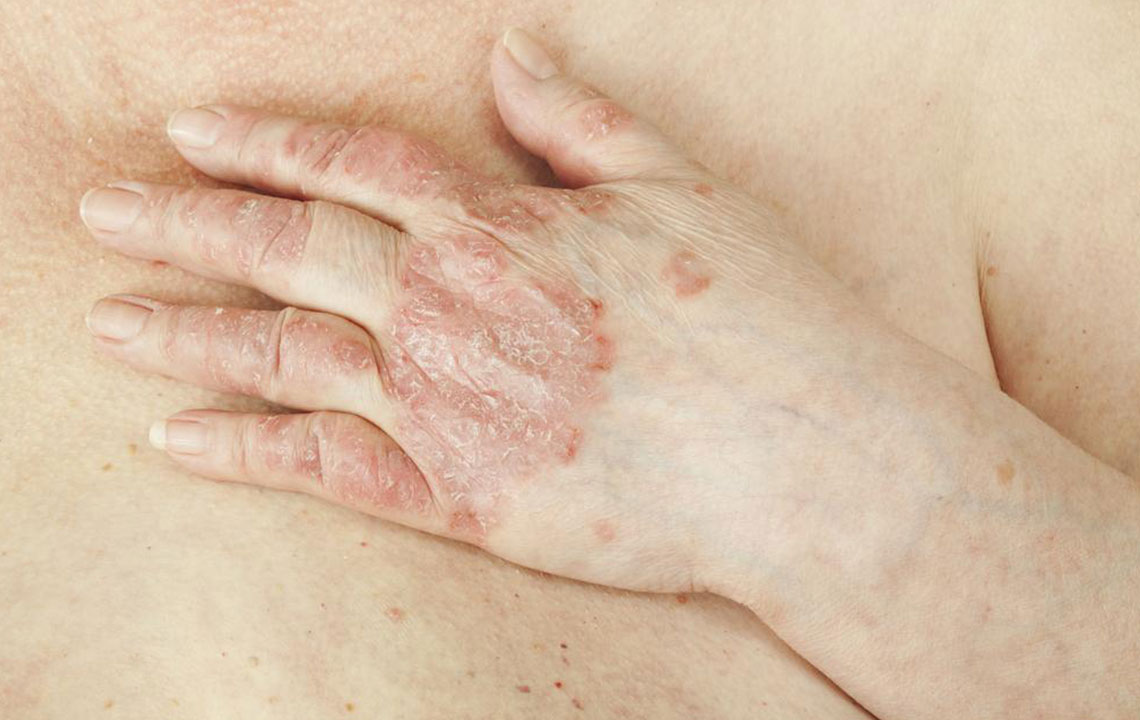Comprehensive Nutritional Strategies for Managing and Alleviating Psoriatic Arthritis Symptoms
Explore comprehensive nutritional strategies to manage and alleviate psoriatic arthritis symptoms. This guide details anti-inflammatory diets, antioxidant-rich foods, weight management tips, and dietary modifications that support joint health. Combining medical treatments with personalized nutrition plans can significantly improve quality of life, reduce pain, and slow disease progression for those suffering from psoriatic arthritis.

Effective Dietary Approaches to Reduce Psoriatic Arthritis Discomfort
Psoriatic arthritis is a chronic, debilitating condition primarily affecting adults between the ages of 30 and 50. This inflammatory joint disorder often develops alongside psoriasis, an autoimmune skin disease characterized by the appearance of red, scaly patches. Research indicates that nearly one-third of individuals suffering from psoriasis will go on to develop psoriatic arthritis, although in some cases, joint symptoms may manifest before any visible skin issues. Understanding the disease’s underlying mechanisms and exploring targeted nutritional strategies is crucial for managing symptoms and improving quality of life.
Understanding Symptoms and Pathogenesis
Psoriatic arthritis mimics many features of rheumatoid arthritis but has distinct characteristics. Patients typically experience intense joint pain, swelling, and stiffness, which can disrupt daily activities. Common signs include swollen fingers (dactylitis), toe swelling, pain in the soles of the feet, and lower back discomfort. These symptoms are primarily caused by immune system dysfunctions, where the body's immune defenses mistakenly attack healthy tissues, leading to localized inflammation within the joints. This autoimmune response triggers the release of inflammatory cytokines, which perpetuate tissue destruction and joint degeneration.
Environmental factors such as infections, stress, and mechanical injuries can act as triggers for flare-ups. Additionally, genetic predispositions play a significant role in disease development; certain gene markers increase vulnerability. Researchers have identified specific genes associated with immune regulation that correlate with higher risk, highlighting the importance of personalized approaches to management. Although the quest for a definitive cure continues, current treatments aim to suppress inflammation, reduce symptoms, and prevent joint damage. Advanced therapies include biological agents, immunosuppressants, and physical therapy, combined with lifestyle modifications especially related to diet.
Can Diet Cure Psoriatic Arthritis?
Despite the absence of a cure, adopting specific nutritional patterns can significantly mitigate symptoms and delay disease progression. A balanced diet tailored to reduce inflammation and support immune health emerges as a key component of comprehensive management. Though dietary intervention alone cannot eliminate the disease, it can complement medical treatments and enhance overall well-being.
Optimized Dietary Practices for Symptom Reduction
The following dietary principles have been identified as beneficial for individuals with psoriatic arthritis:
Anti-Inflammatory Diets
Chronic joint inflammation leads to pain and reduces mobility. Therefore, minimizing pro-inflammatory foods and incorporating anti-inflammatory nutrients can be markedly effective. Omega-3 fatty acids are particularly potent in this regard, with sources including fatty fish such as salmon, mackerel, sardines, and anchovies. These fatty acids help suppress inflammatory cytokines and prostaglandins, reducing flare-ups. Plant-based options like flaxseed oil, hemp seeds, walnuts, and chia seeds also provide essential omega-3s. Furthermore, whole grains like brown rice, quinoa, and barley, along with nuts and leafy greens such as spinach and kale, contribute anti-inflammatory phytochemicals, fiber, and antioxidants.
Harnessing the Power of Antioxidants
Oxidative stress is a key factor amplifying inflammation and tissue damage in psoriatic arthritis. An antioxidant-rich diet can neutralize free radicals, thereby protecting cells and tissues. Colorful fruits such as berries, mangoes, and oranges, along with vegetables including broccoli, bell peppers, carrots, and tomatoes, are excellent sources of vitamin C, carotenoids, flavonoids, and polyphenols. Including lean proteins like seafood, poultry, dairy, and eggs supplements antioxidant intake and supports immune function.
Nutritional Control for Weight Management
Obesity exacerbates psoriatic symptoms and fosters metabolic complications such as insulin resistance and cardiovascular disease. A low-fat, low-sugar diet emphasizing nutrient-dense foods aids weight control and reduces inflammation. Cruciferous vegetables like cauliflower, cabbage, and Brussels sprouts contribute to weight loss due to their high fiber content and low calorie density. Limiting processed foods and sugary beverages minimizes inflammatory triggers and enhances joint health. Regular physical activity complemented by dietary regulation is vital for maintaining a healthy weight.
Gluten-Free Considerations
Emerging research suggests a potential link between gluten sensitivity and psoriatic conditions. People with celiac disease or gluten intolerance may experience symptom alleviation by adopting a gluten-free diet. Trusted gluten-free foods include beans, dairy products, unprocessed meats, seafood, and naturally gluten-free grains such as rice, corn, millet, and tapioca. Consultation with a healthcare professional is advisable before making significant dietary changes, especially for those with known sensitivities or coexisting autoimmune disorders.
Mediterranean-Style Dietary Pattern
The Mediterranean diet is renowned for its anti-inflammatory properties and cardiovascular benefits. Emphasizing fish rich in omega-3s, fresh vegetables, fruits, legumes, nuts, and seeds creates a natural anti-inflammatory environment within the body. Moderate consumption of dairy and red meat, with limited intake of processed and fried foods, further reduces inflammatory responses. This diet encourages a holistic approach to health, promoting improved joint function and enhanced immune resilience. Personalizing the diet based on individual preferences and nutritional needs ensures better adherence and results.
In conclusion, while dietary modifications do not constitute a cure for psoriatic arthritis, incorporating anti-inflammatory foods, managing weight, and ensuring adequate antioxidant intake can significantly alleviate symptoms. These strategies should be adopted as part of a comprehensive treatment plan under medical supervision, aiming to improve mobility, reduce pain, and prevent disease progression. Ultimately, a personalized approach, considering genetic background, lifestyle, and disease severity, is essential for effective management and long-term health benefits.





